Publications
For free downloads of Britpave publications click on the download button. Then go to our check-out trolley - the shopping trolley icon top right-hand corner.
By downloading Britpave publications you are agreeing to be placed on our mailing list for news of new publications and industry initiatives. To unsubscribe email: info@britpave.org.uk
To access publications on specific infrastructure types click on the relevant infrastructure tab.
-
Concreting pavements in winter
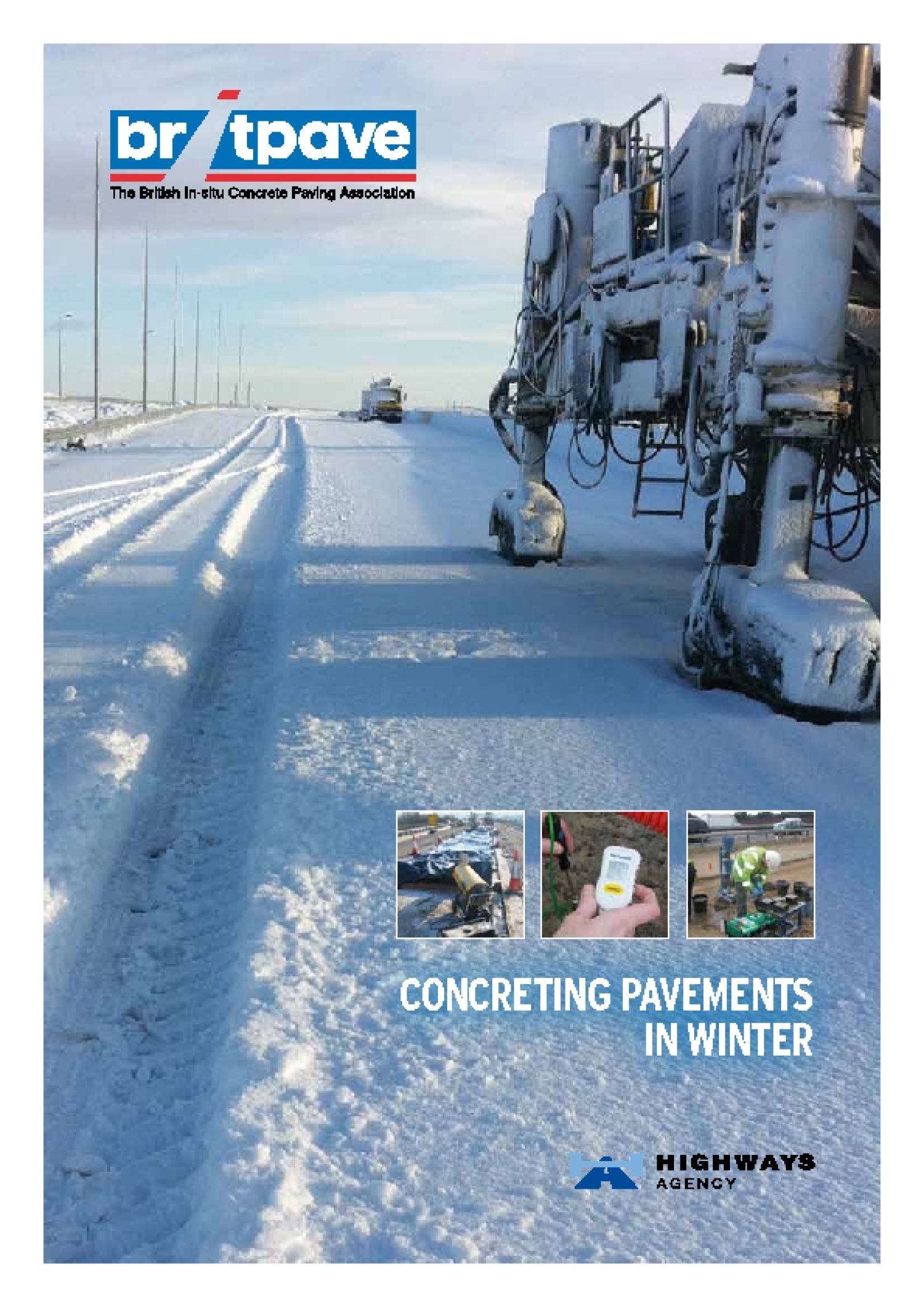
Covers the practicalities of concreting road pavements in ambient temperatures around and below the freezing point of water. It gives information on planning, concrete temperatures at mixing and placing, pre-concreting preparations, protection after laying and admixtures. Pub. 2012
£10.00** Free to Britpave Members
-
Truck Lanes - The Permanent Solution
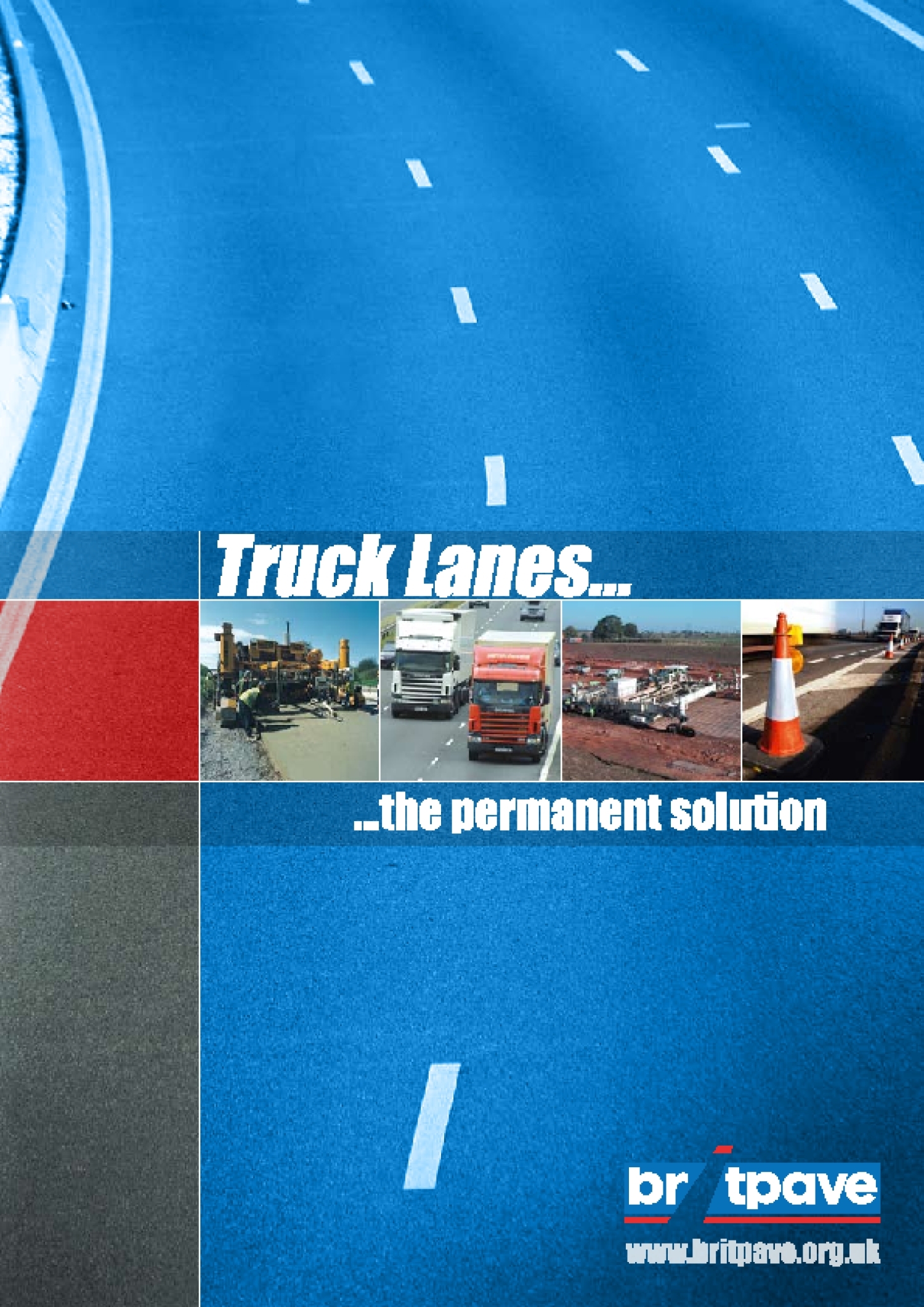
The publication provides information on the truck lane solution and its benefits to the environment, reduced maintenance, buildability and application.
£10.00** Free to Britpave Members
-
Immediate trafficking of cement bound materials
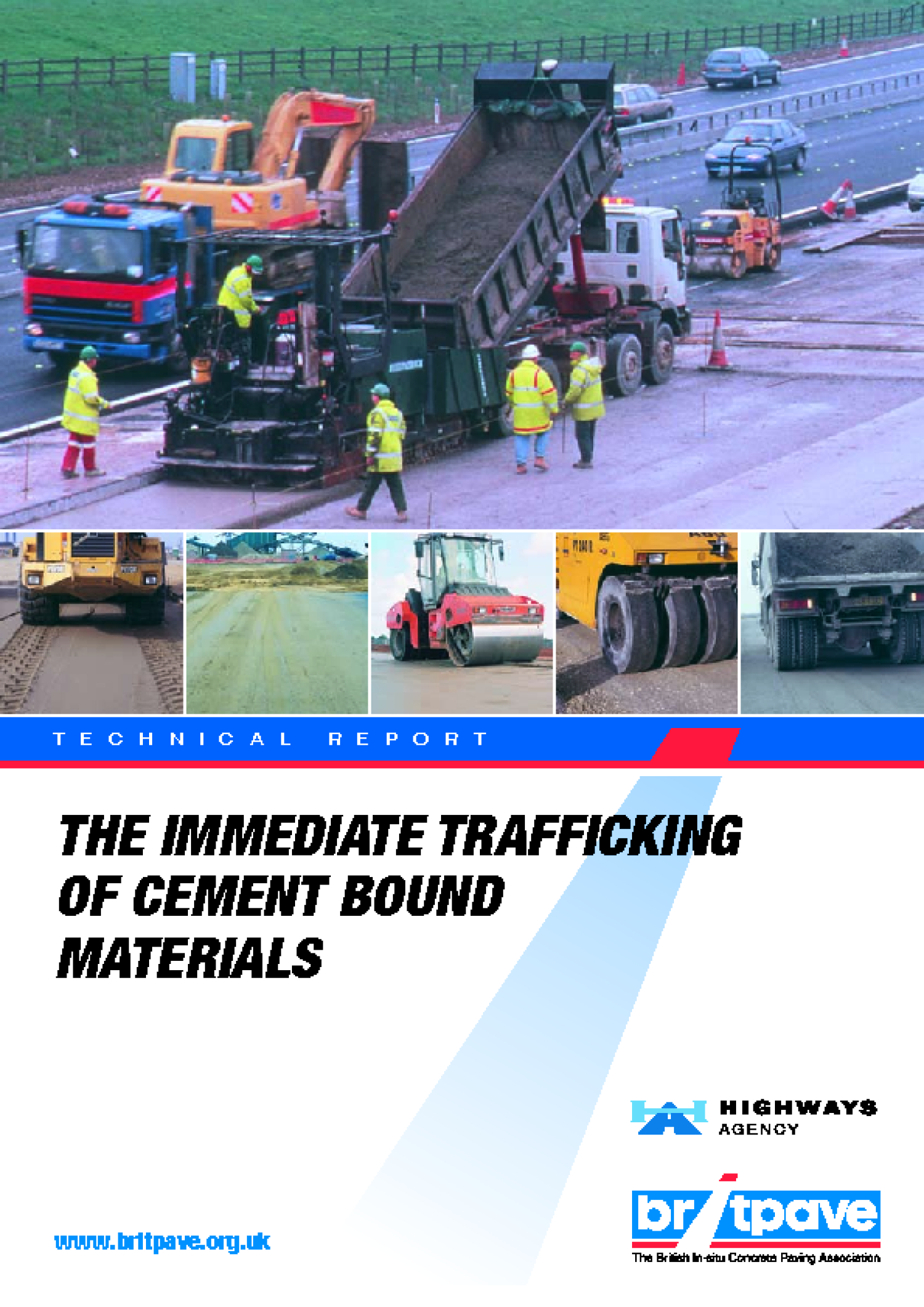
Reviews the results of a joint Highways Agency/Britpave project to examine the immediate trafficking of a range of cement bound materials. The report identifies those mixtures that can be trafficked early and those that require a curing period. Pub. 2005
£10.00** Free to Britpave Members
-
Concrete Hardstanding - Design Handbook (3rd Edition)
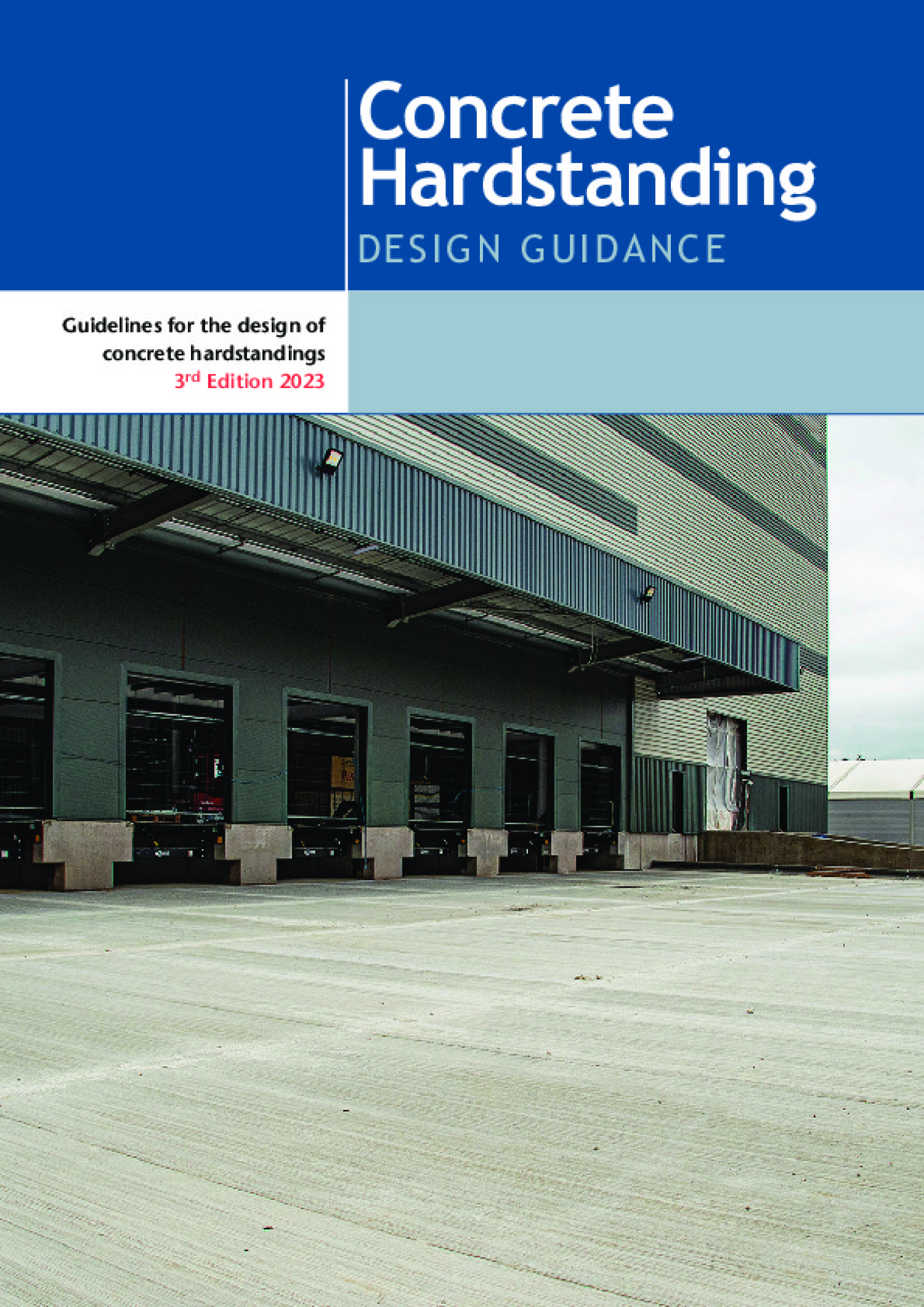
New edition 2023. Prepared for all those concerned with hardstandings trafficked by heavy goods vehicles and forklift trucks, it explains the simple steps that can be taken to ensure their long-term performance. Covers design, site appraisal, sub-grade, sub-base, concrete mix and construction, thickness design, joints, surface characteristics and integrated design.
£10.00** Free to Britpave Members
-
Hydraulically Bound Mixtures for Pavements in Winter
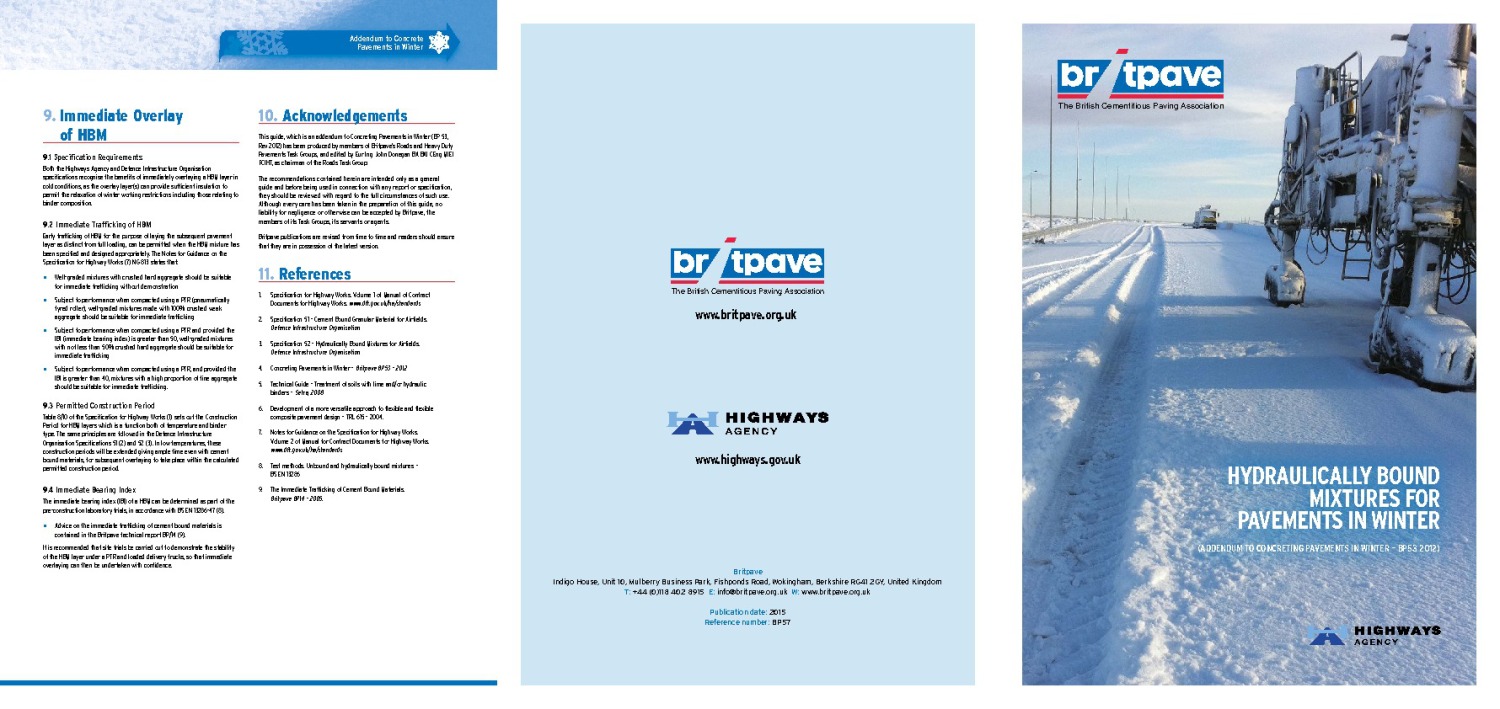
Addresses the practicalities of mix-in plant production and laying hydraulically bound mixtures (HBM) in ambient temperatures around and below the freezing point of water. Provides guidance and recommendations for the successful laying of HBM in low winter temperatures. Pub. 2015
£10.00** Free to Britpave Members
-
Smart Motorway Construction with Concrete
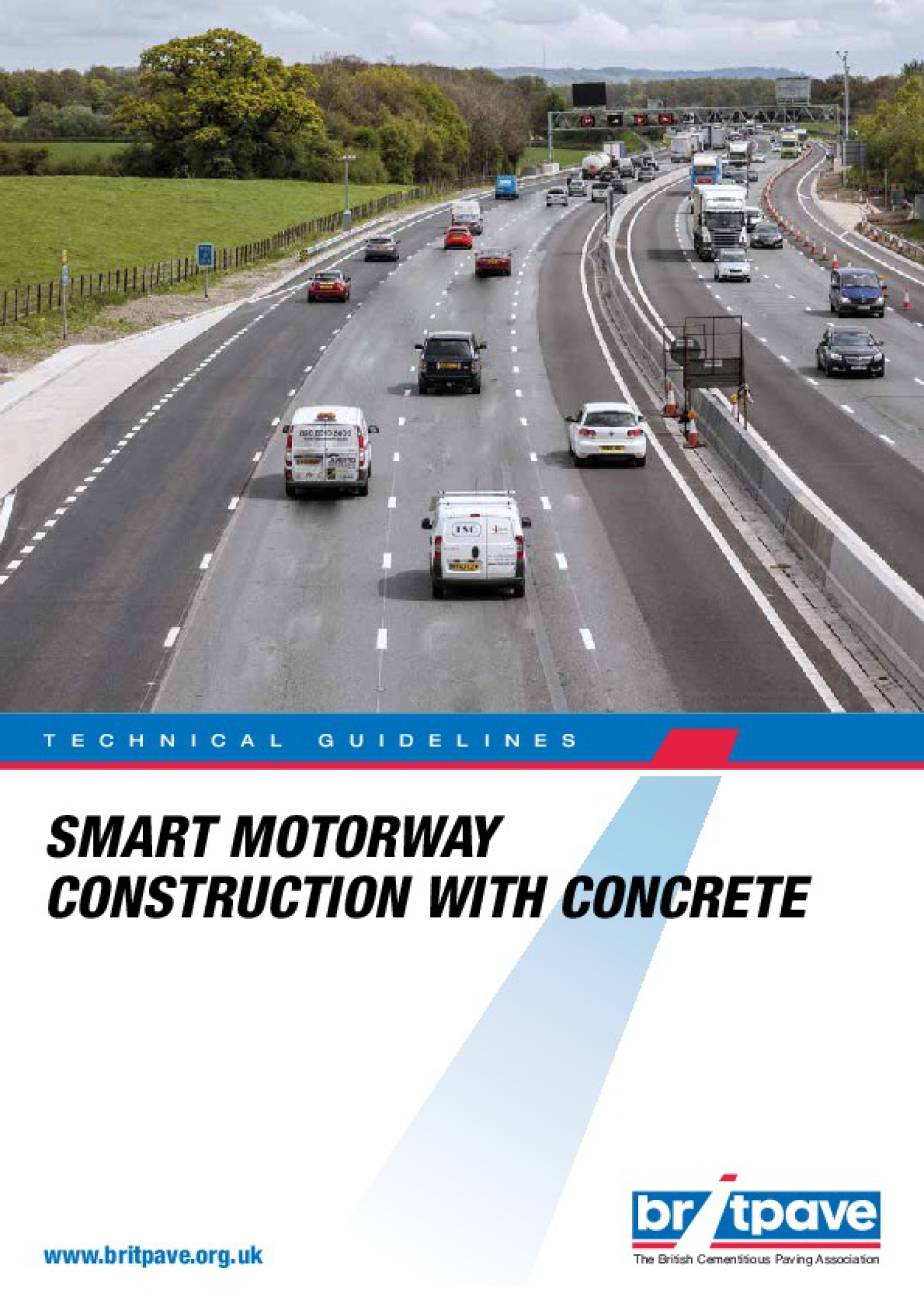
The benefits of concrete motorway pavements have been known for some time and many stretches of concrete motorway have been maintenance free for decades, frequently exceeding their design lives. These technical guidelines explain the benefits of using concrete as part of an integrated design approach, with particular emphasis on the pavement layers, where new design guidance creates the opportunity for maximising whole-life value and minimising ongoing maintenance requirements. Pub. 2015
£10.00** Free to Britpave Members
-
A Guide to Concrete Road Pavements
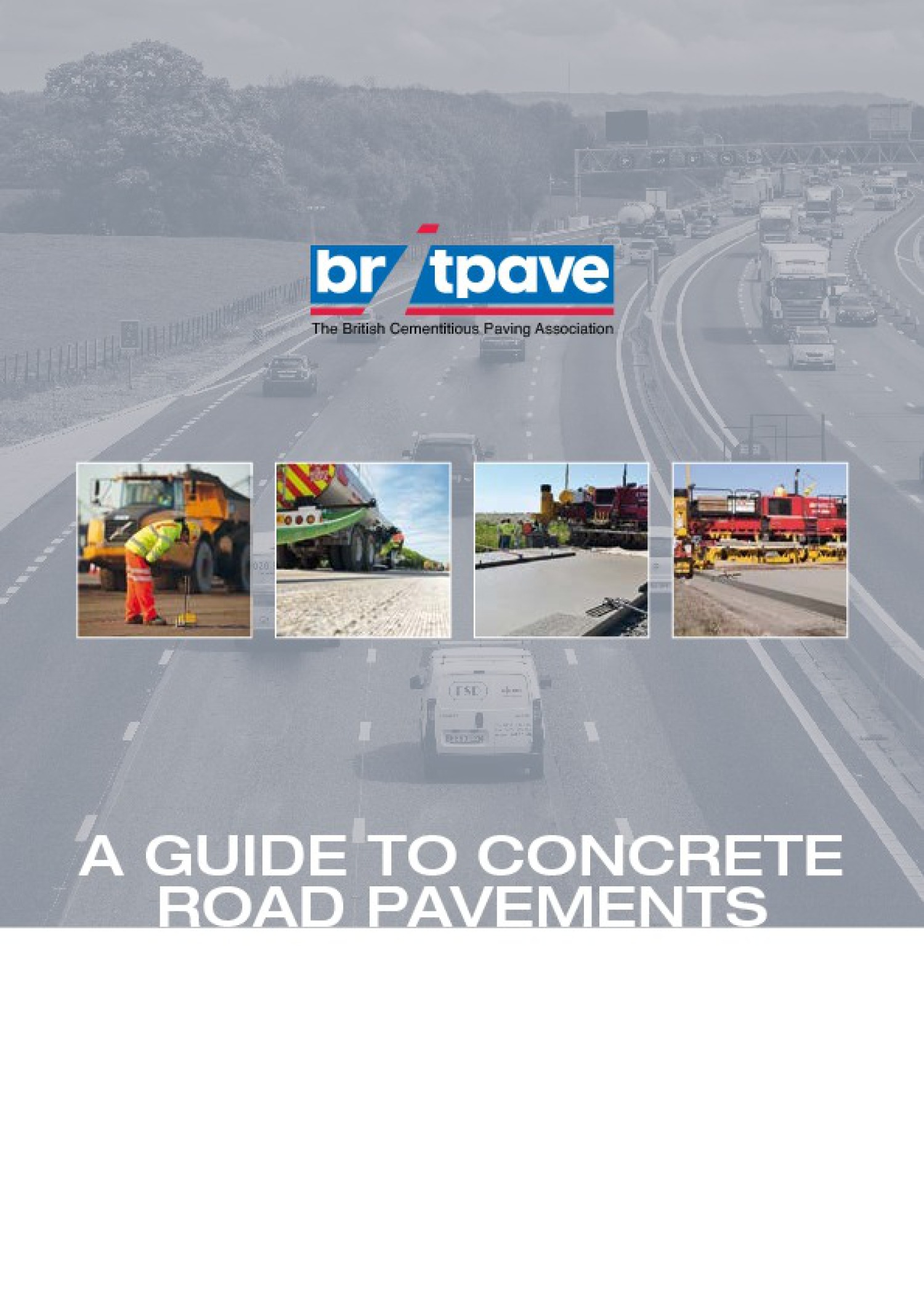
The guide examines a number of concrete pavement options that, although tested and proven overseas, have yet to gain widespread adoption in the UK despite their whole life cost, noise reduction, long-term performance and minimum maintenance benefits. The options discussed include Continuously Reinforced Concrete Pavements (CRCP), Exposed Aggregate Concrete Surface (EACS) Roller Compacted Concrete (RCC), Groove and Grind and Whitetopping. The guide also forwards a number of applications where concrete roads could provide roads that in the future earn their keep. Pub. 2018
£10.00** Free to Britpave Members
-
Motorway barriers: the concrete benefits
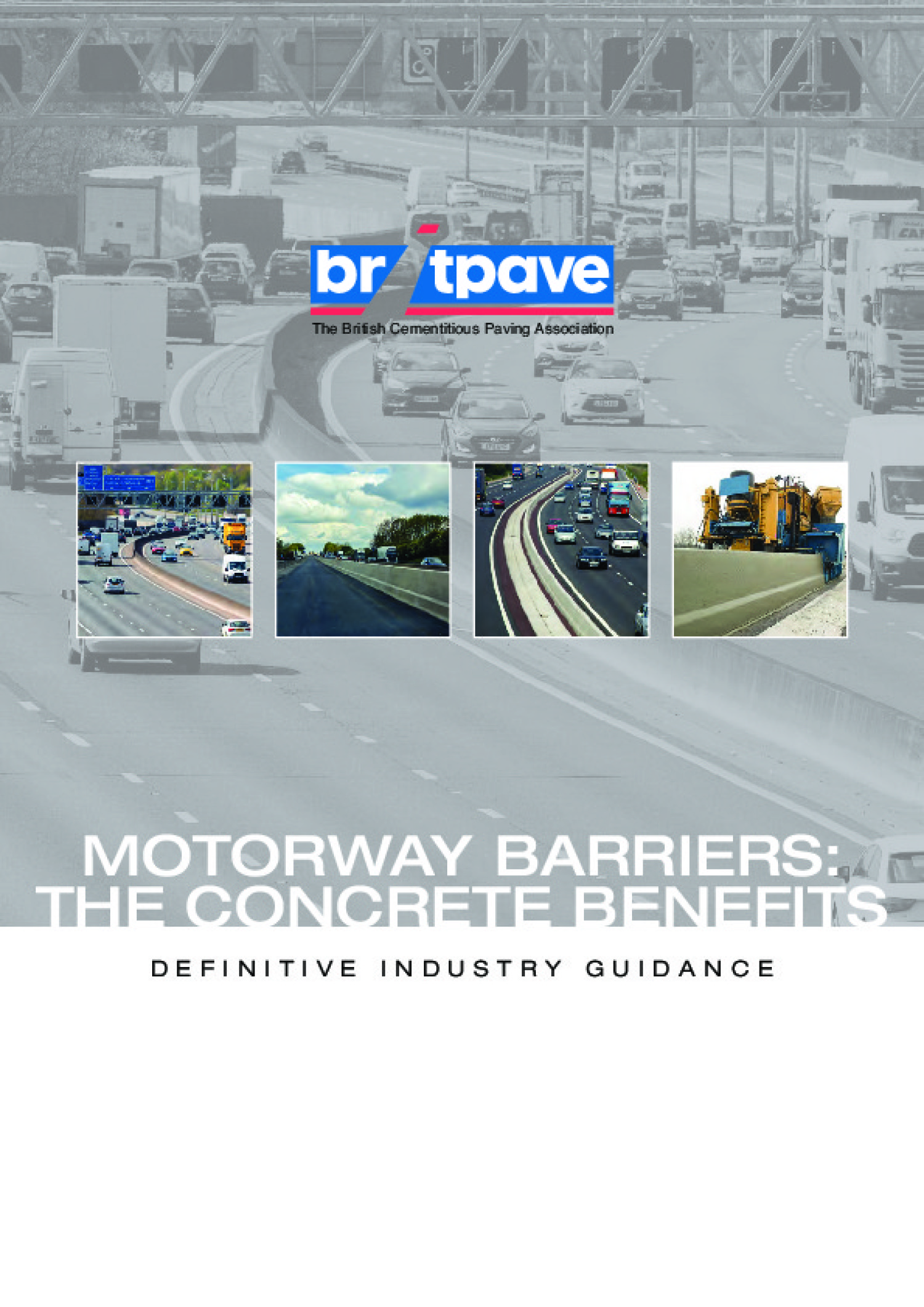
This guide outlines the benefits of concrete motorway barriers. These benefits include superior vehicle containment to reduce the risk of crossover accidents, a performance life of at least 50 years with minimum maintenance, minimal land take, the use of recycled aggregates and full end-of-life recyclability plus a wide range of available barrier types. With such a range of benefits, it is little wonder the concrete central barriers are the default option for motorways and trunk roads where the average annual daily traffic level is 25,000 vehicles per day or more. Pub. 2020
£10.00** Free to Britpave Members
-
An Introduction to Horizontal Slipform Paving
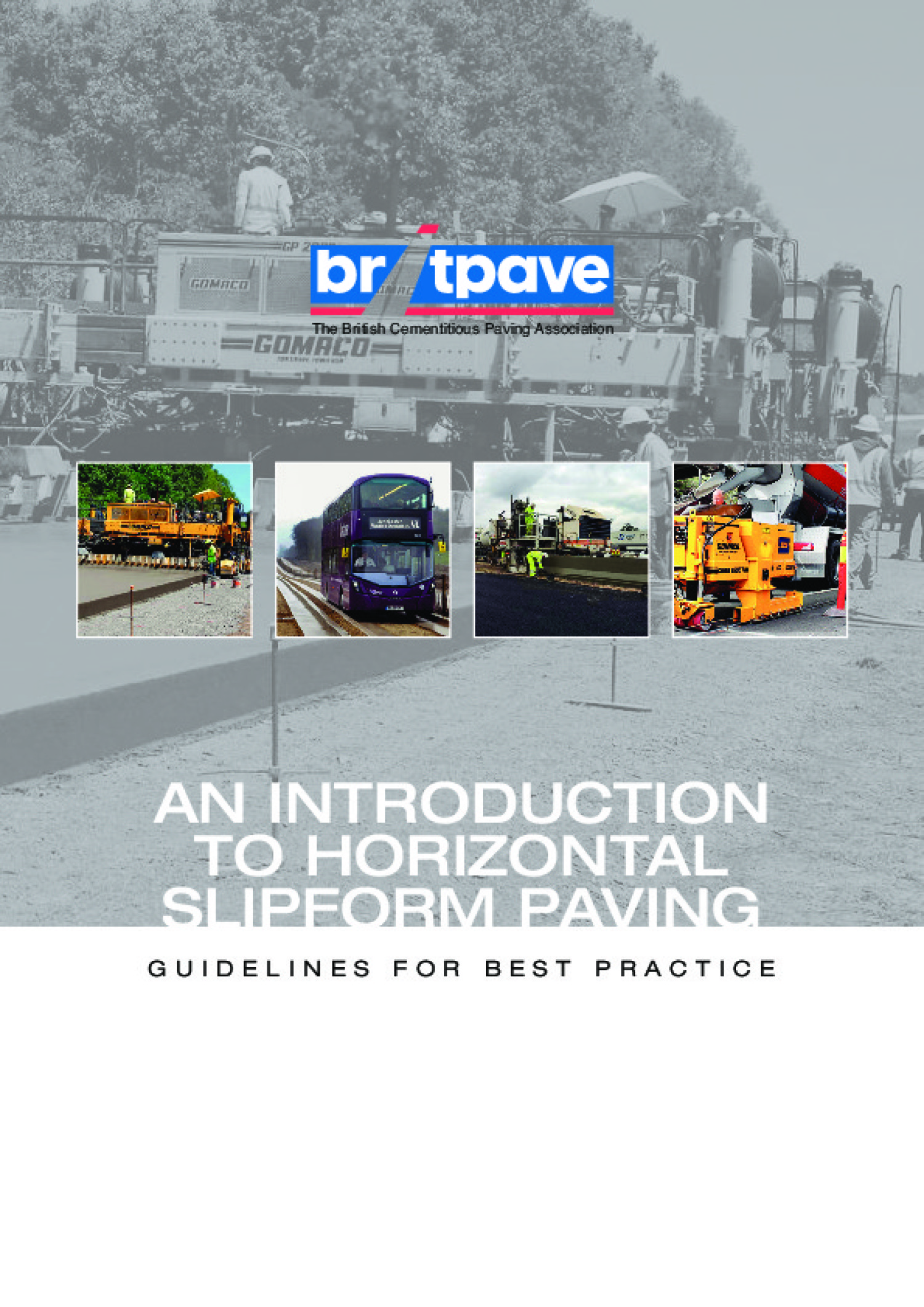
Britpave, has published a new guide that provides an explanatory overview of horizontal slipform paving for infrastructure projects such as roads, rail tracks, busways, barriers and drainage. Horizontal slipforming is the on-site process of constructing continuous concrete elements. It involves concrete being poured into continuously moving plant. This is then vibrated and extruded from the specially designed attached formwork mould to produce the required profile. In particular, the new guide highlights how horizontal slipform paving offers a fast way to deliver a wide range of concrete construction and performance benefits including increased productivity, minimum maintenance and long-term performance. ‘An introduction to horizontal slipform paving: guidelines for best practice’ is available as a free download from: www.britpave.org.uk/publications Pub. 2020
£10.00** Free to Britpave Members
-
Non-Destructive Density Testing of Concrete Pavements
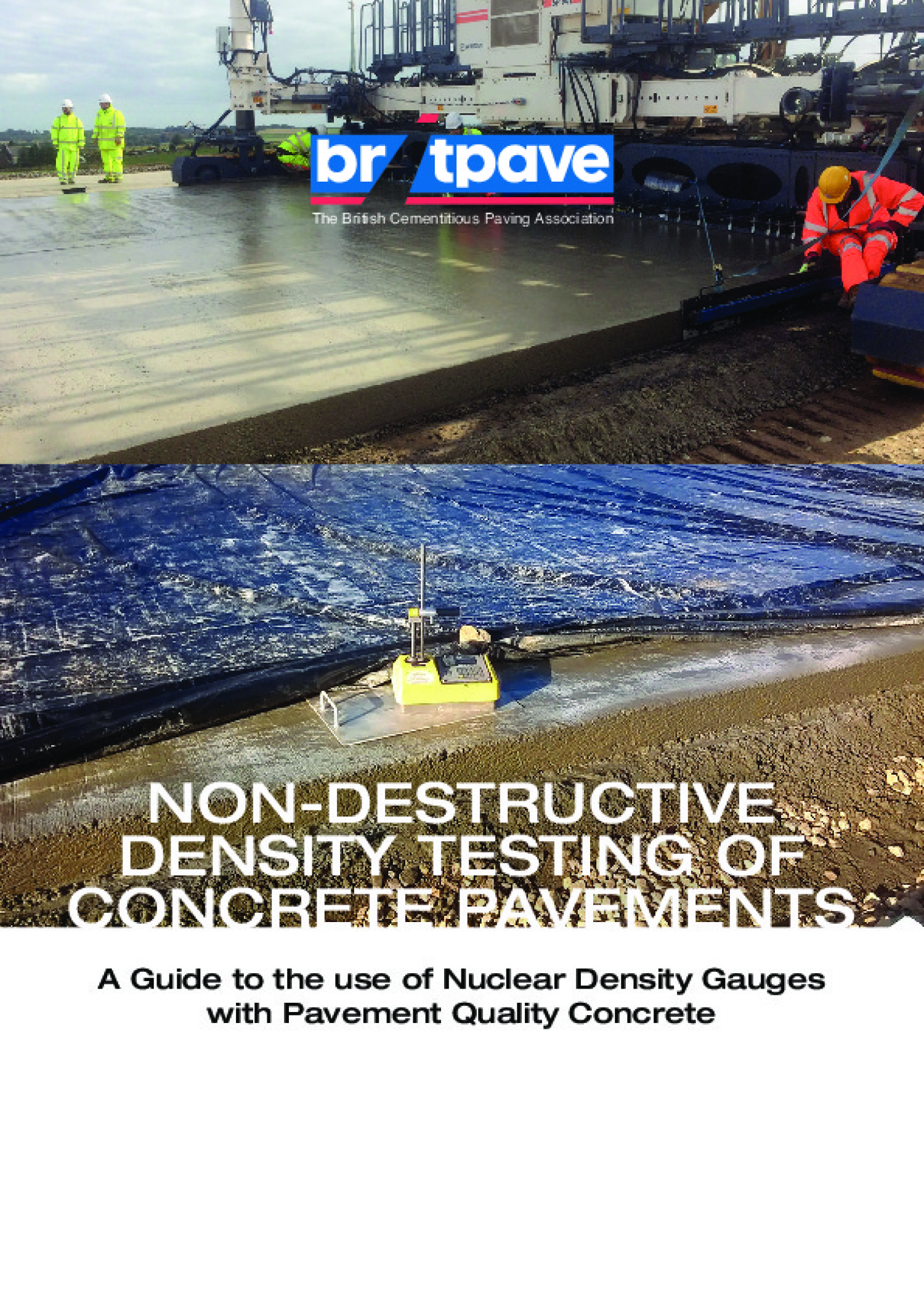
The guide explains how the use of nuclear density gauges avoids the need to take cored samples from a newly laid concrete pavement for non-intrusive testing of concrete strength and in-situ density. The latest edition of the Specification for Highway Works has adopted strength compliance requirements based on cubes and specifies that, with the exception of the trial length, the density of a concrete pavement should be determined by non-destructive methods. It is for the contractor to propose a suitable non-destructive testing method for approval. The guide outlines the non-destructive testing approach for density and for the nuclear density gauge calibration the pavement concrete mix. It also provides a methodology for nuclear density gauge testing and a series of worked examples. Pub. 2020
£10.00** Free to Britpave Members
-
Making the case for concrete roads
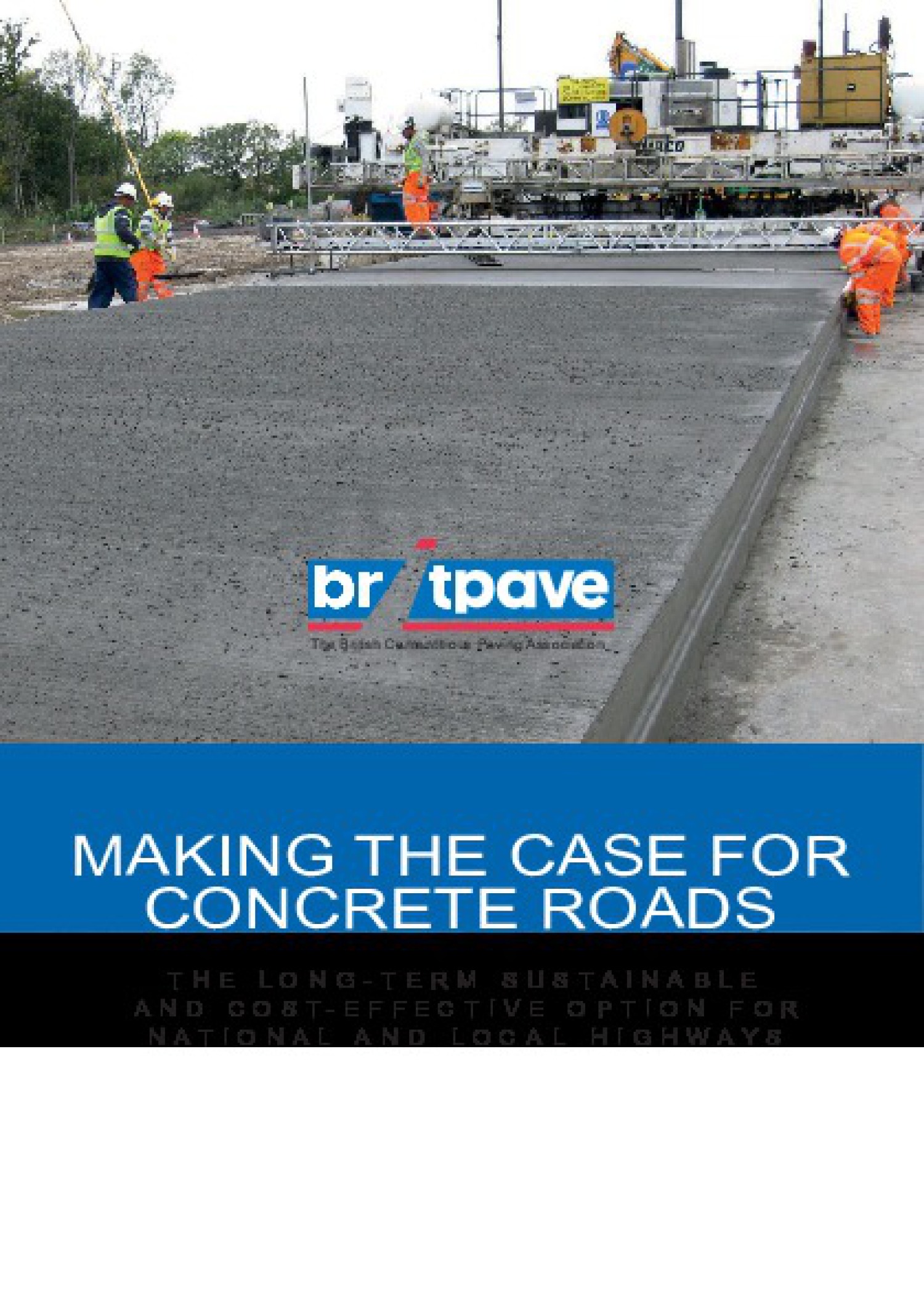
This brochure outlines and underlines the wide range of environmental and economic reasons why the road ahead should be concrete. Pub. 2021
£10.00** Free to Britpave Members
-
Britpave Guide to Roller Compacted Concrete Pavements - 2nd Edition 2022
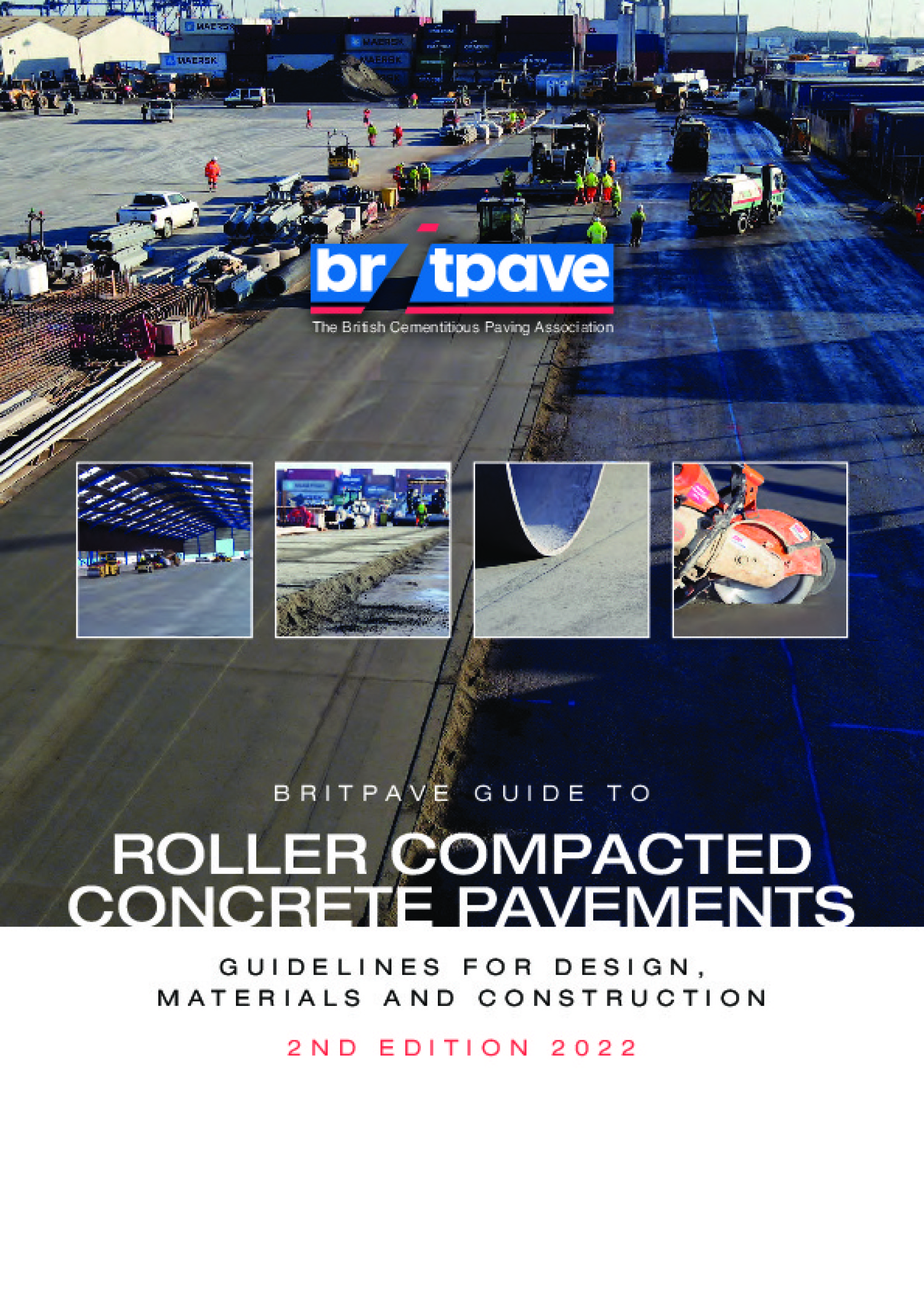
Roller Compacted Concrete. This guide describes the benefits, properties and application of RCC, provides recommendations on mix design and materials selection, and discusses applicable design methods, construction methodology and techniques. The guide was reviewed and updated in 2022 Pub. 2022
£10.00** Free to Britpave Members
-
IBAA case study
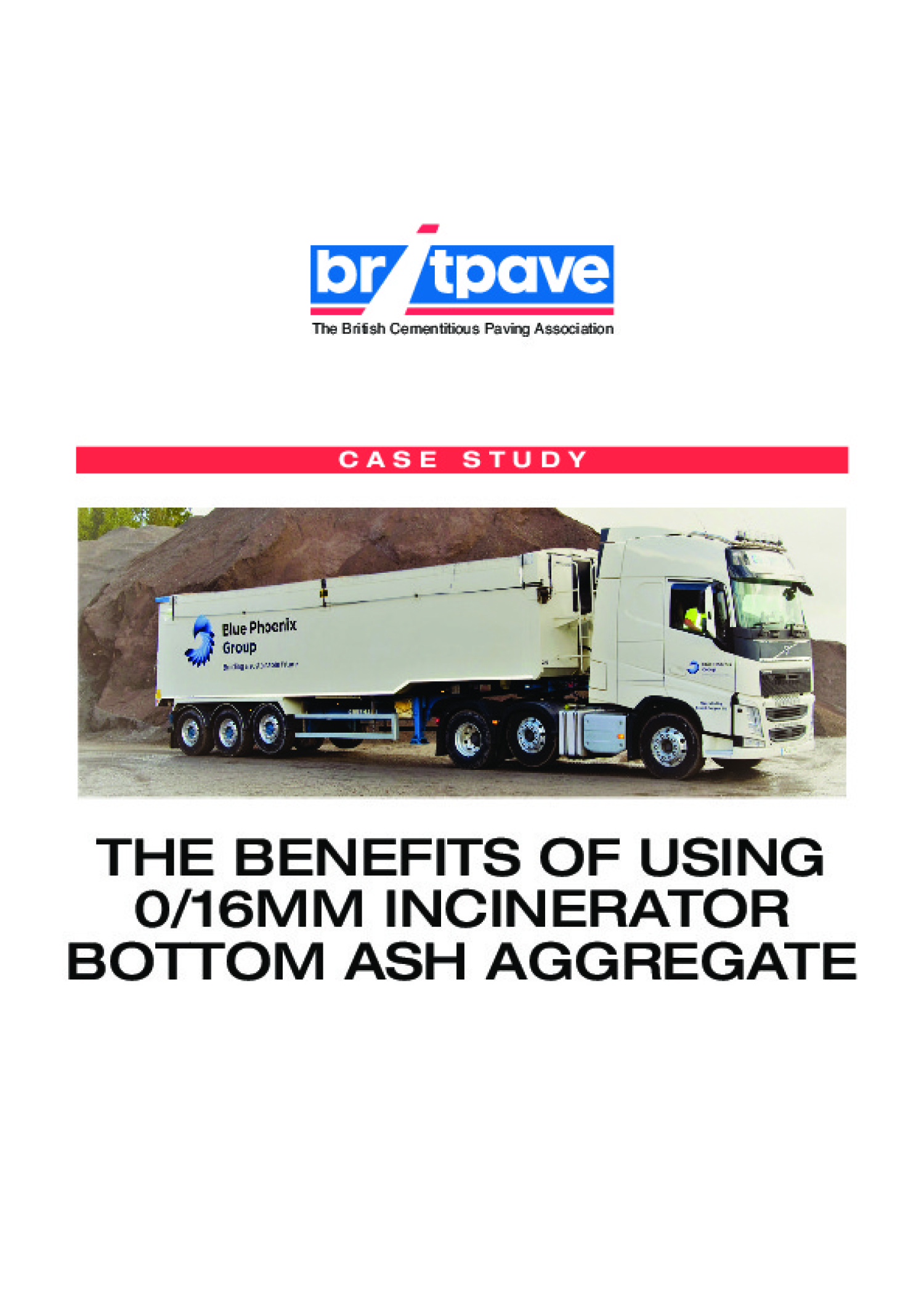
Britpave member Blue Phoenix and Aecom has undertaken site trials that underline not only the environmental benefits of Incinerator Bottom Ash Aggregate (IBAA) but also how the use 0/16mm IBAA can fully meet performance benefits of specifications CD225 and the MCHW Series 800. Pub. 2022
£10.00** Free to Britpave Members
-
Britpave Reducing Fuel Consumption

Reducing vehicle fuel consumption is important for reducing CO2 emissions. Stiffer concrete roads can result in fuel savings due to reduced tyre deflection. The fuel savings can be significant for HGVs. A growing body of international research suggests that there is a readily available roads option that could assist with the reducing the CO2 impact of HGVs: the concrete truck lane. Pub 2025
£10.00** Free to Britpave Members
-
Cooling Urban Heat Islands

The report examines how the high rate of concrete's albedo effect - ability to reflect sunlight and solar radiation - could help to reduce the temperature of urban heat islands. Concrete offers an albedo effect of 25% to 50% compared with the 5% effect of asphalt pavements. The albedo, cost-free benefit of concrete pavements should be a consideration when thinking about covering concrete roads with asphalt overlays. Pub 2025
£10.00** Free to Britpave Members

